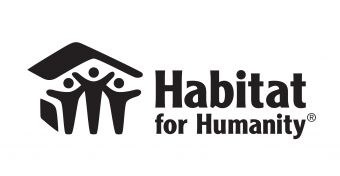- Education Topics
- Achievement Gap
- Alternative Education
- American Education Awards
- Assessment & Evaluation
- Education during COVID-19
- Education Economics
- Education Environment
- Education in the United States during COVID-19
- Education Issues
- Education Policy
- Education Psychology
- Education Scandals and Controversies
- Education Reform
- Education Theory
- Education Worldwide
- Educational Leadership
- Educational Philosophy
- Educational Research
- Educational Technology
- Federal Education Legislation
- Higher Education Worldwide
- Homeless Education
- Homeschooling in the United States
- Migrant Education
- Neglected/Deliquent Students
- Pedagogy
- Sociology of Education
- Special Needs
- National Directories
- After School Programs
- Alternative Schools
- The Arts
- At-Risk Students
- Camps
- Camp Services
- Colleges & Universities
- Counties
- Driving Schools
- Educational Businesses
- Financial Aid
- Higher Education
- International Programs
- Jewish Community Centers
- K-12 Schools
- Language Studies
- Libraries
- Organizations
- Preschools
- Professional Development
- Prom Services
- School Assemblies
- School Districts
- School Field Trips
- School Health
- School Supplies
- School Travel
- School Vendors
- Schools Worldwide
- Special Education
- Special Needs
- Study Abroad
- Teaching Abroad
- Volunteer Programs
- Youth Sports
- For Schools
- Academic Standards
- Assembly Programs
- Blue Ribbon Schools Program
- Educational Accreditation
- Educational Television Channels
- Education in the United States
- History of Education in the United States
- Reading Education in the U.S.
- School Grades
- School Meal Programs
- School Types
- School Uniforms
- Special Education in the United States
- Systems of Formal Education
- U.S. Education Legislation
- For Teachers
- Academic Dishonesty
- Childcare State Licensing Requirements
- Classroom Management
- Education Subjects
- Educational Practices
- Interdisciplinary Teaching
- Job and Interview Tips
- Lesson Plans | Grades
- Professional Development
- State Curriculum Standards
- Substitute Teaching
- Teacher Salary
- Teacher Training Programs
- Teaching Methods
- Training and Certification
- For Students
- Academic Competitions
- Admissions Testing
- At-Risk Students
- Career Planning
- College Admissions
- Drivers License
- Educational Programs
- Educational Television
- High School Dropouts
- Higher Education
- School Health
- Senior Proms
- Sex Education
- Standardized Testing
- Student Financial Aid
- Student Television Stations
- Summer Learning Loss
Habitat’s Collegiate Challenge program

Basic Information
Address: 285 Peachtree Center Ave NE Ste 2700, Atlanta, GA 30303
Phone Number: (800) HABITAT
Additional Information
Causes Served: affordable housing, advocacy, disaster recovery, neighborhood revitilazation
Clearances Required: No
Population Served: New homeowners
Ages for Volunteer: 18+ (some minors accepted 16+ possible)
Days of Service: 5 to 7
Mission Statement:
Seeking to put God’s love into action, Habitat for Humanity brings people together to build homes, communities, and hope. We partner with people in your community and all over the world to help them build or improve a place they can call home.
Philosophy/Belief Statement:
Habitat for Humanity partners with people in your community, and all over the world, to help them build or improve a place they can call home. Habitat homeowners help build their own homes alongside volunteers and pay an affordable mortgage. With your support, Habitat homeowners achieve the strength, stability and independence they need to build a better life for themselves and for their families. Through our 2020 Strategic Plan, Habitat for Humanity will serve more people than ever before through decent and affordable housing.
Program History:
Started in 1990, Collegiate Challenge is one of Habitat for Humanity International’s longest-running student youth volunteer programs. It is unique in offering year-round volunteer opportunities for teams of
youth to build for a week at various Habitat locations across the United States
Events:
Collegiate Challenge is an alternative break program that strives to capture the imagination, energy, and hope of young people in order to productively and responsibly involve them in the work of Habitat for a week
Additional Information:
To apply, please visit us at: habitat.org/collegiatechallenge
Started in 1990, Collegiate Challenge is one of Habitat for Humanity International's longest-running student youth volunteer programs. It is unique in offering year-round volunteer opportunities for teams of
youth to build for a week at various Habitat locations across the United States. Groups can choose
to volunteer close to their school or on the other side of the country. No prior experience is needed to
volunteer. All that's needed is a group of five or more students ages 18 or older (chaperones over the
age of 25 are also welcome). So, grab four friends or more and submit your interest application for a
Habitat Collegiate Challenge trip. Then prepare for an incredible experience you and your friends
will never forget! **Locations across the United States are available/Lodging and meals are available with some NOT all locations**


